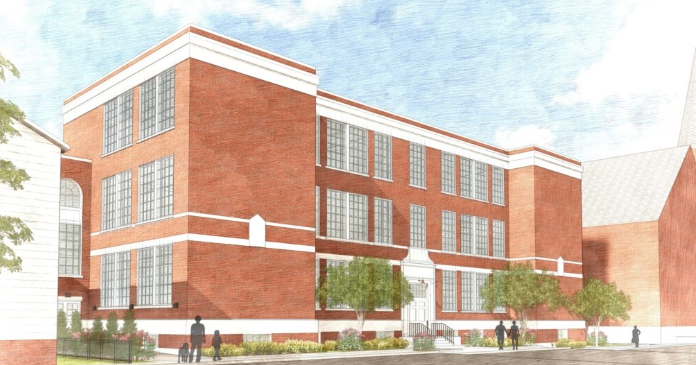The wicked spikes of global oil prices affect the MF industry in a number of direct and indirect ways. Here’s a look at some of the increased costs property managers face and what they can do to keep the evil market twitches of the Middle East at bay.
Apartment owners and their residents will feel the pinch of rising oil prices this winter, with energy costs spiking as much as 71 percent in the Midwest, according to estimates.
But the indirect impact of expensive oil may prove to be even more significant.
To the degree that it erodes consumer-spending power, expensive oil will make it harder to raise rents. It also will make it more difficult to develop new apartment buildings as construction costs are pushed to levels that rents will not support.
On an even broader level, higher gasoline prices may make more apartment dwellers want to move closer to their jobs and to communities that offer a broader variety of services and entertainment, thus increasing demand in urban areas and central business districts.
Meanwhile, big increases in home heating costs at a time when homes are selling for historically high prices could generate more demand for apartments as more potential buyers are priced out of home ownership, and homeowners feeling the squeeze look to reduce their living expenses.
While it’s difficult to say exactly what impact rising oil prices will have on the apartment industry, one thing appears certain: apartment owners and managers will be rethinking how they purchase and use energy.
FUEL FACTS
Crude oil prices already had doubled from January 2004 to $66 a barrel before Hurricane Katrina struck the Gulf Coast August 29, devastated towns along the shores of Alabama, Mississippi and Louisiana and briefly paralyzed 10 percent of the nation’s oil production. By mid September, some economists were predicting Katrina’s impact on the overall economy would cut GDP growth for the year by 1 percent. Others wondered whether increasing oil prices would cause inflation.
“A general decrease in economic growth seems a more likely impact than inflation,” says Mark Orblinski, chief economist for the Washington D.C.-based National Multi Housing Council. “People buy less of anything that has fuel oil or gasoline as a component. That seems to be what more economists are expecting, but not to the degree that we saw in the 1970s, when the gas crisis caused inflation that just kept spiraling up into the economy. That said, it’s surprising that oil prices have gone up as much as they have already without having much impact on the economy.”
Fuel costs are included in rent in only about one-third of all apartments and Urban Land Institute data indicates gas and oil account for only about 2 percent of operating expenses in the approximately two-thirds of apartments where residents pay utilities directly.
“It’s not a huge item, but neither is it negligible,” Orblinski says.
Mike Gordon, president and founder of ConsumerPowerline, a New York City-based energy broker whose clients own about 85,000 apartment homes, says that as of September energy costs had increased approximately 40 percent, year to year.
“Assume all energy costs for a typical apartment are $1,500 a year. That’s an increase of $600 a year, and I don’t think that’s coming down,” Gordon says. “That’s coming right out of the purchasing power of individuals and owners, and that’s after-tax dollars. It’s going right to the Middle East.”
Owners certainly are going to try to pass their increased energy costs through to the residents. But that may not be easy.
“Between increased heating and AC costs, renters are going to be squeezed,” says Maureen McAvey, senior fellow for urban development at the Urban Land Institute. “They may look for roommates or cheaper apartments. Already, we’re seeing people in surveys respond that they are eating out less often. It’s going to be harder to raise rents, from the landlord’s perspective, than it is now to cover all of the increased costs on a building because the renters already are being squeezed by gas prices and the higher costs of things they buy related to gas prices.”
McAvey says industry observers don’t know yet the extent of the impact of rising oil prices.
“If you’re a landlord renewing someone’s lease, you’d be hard pressed to know how much to increase that lease. The landlord will be paying more even for the central spaces in buildings,” she says.
Greg Martin, head of rental property management at Draper and Kramer Inc., a privately held full-service real estate company that manages about 11,000 Chicago apartments, says he’s hearing predictions of a 71 percent increase in energy costs in the Midwest this winter.
“In Chicago, we pay for gas and include heating in the rent. But these costs are so astronomical, they’re probably not going to be paid for by the rent,” Martin says. “So, we’re considering metering all of the buildings. Once you do that, you can pass the cost onto the resident, so you’re not going to be hit with major spikes in prices. It costs peanuts compared to these tremendous increases that you can’t recover in today’s lease.”
While a two-bedroom apartment costs about $1,800 to heat with gas for a year, a meter costs only about $200. “So, it’s a petty good pay back,” Martin adds. “We’re meeting soon to determine whether to retrofit our buildings.”
Martin has been purchasing natural gas through brokers for many years, combining the needs of all the properties he manages and purchasing it on the open markets.
“We feel we can buy gas cheaper than we could from the utility companies,” he says.
In addition to rising gas and electric bills, rising oil and gasoline prices increase construction costs and could significantly slow the current strong pace of apartment construction, according to Roland D. Freeman, who operates Capital Consultants Realty Services in Dallas.
“I think it’s going to impact new development far more than existing buildings,” says Freeman, a former developer and property manager and a past president of the National Apartment Association. “Historically, rents have never climbed as fast as replacement costs.”
While developers typically anticipate a 15 percent jump in rents on new construction over the older apartment stock around their new building, Freeman says he’s finding that it currently takes a rent 25 percent higher than existing stock to make new development feasible.
“Anything that exasperates construction costs makes it more difficult to build, and that’s anything impacted by fuel; the baking of the cement mix that goes into concrete and asphalts,” he says. “About 40 percent to 45 percent of the building cost in apartments is manufactured goods. Then, of course, we have to transport that to the building site.”
Freeman anticipates that will cause many apartment developers to put plans on hold.
“Sure, it will cause people not to build. Right now, everybody’s kind putting their hands in their pockets and shrugging their shoulders like, “Well, we’ll see.’ But you can’t take that attitude without taking a big risk too,” he says.
Gordon’s company, ConsumerPowerline, sells excess energy back to the utility companies, essentially serving as representative to utility companies for property owners.
“So when energy prices are high and volatile, our people do better. Compared to their competition, they look a lot better because they’re selling back in as prices go up,” he says.
Business is growing so quickly for ConsumerPowerline, it’s in the process of opening a California office and will expand to New England, New Jersey, Pennsylvania and Maryland within the next six months.
The trend Gordon currently observes, however, is a movement toward large capital improvements to increase efficiency.
“If they have a $5 million efficiency project underway, it’s becoming a $20 million project overnight,” he says. “The reductions in energy costs in the immediate sense become bid-able load that’s sold back into the market. If the market is volatile and high yielding, it will yield more now than it will later. So, they are able to sell energy back into the market for more. The three-year pay back project becomes a one-year pay back and the six-year pay back projects that were on the back burner are two-and-a-half-year-year pay backs.”
Ron Witten, who owns Witten Advisors, LLC, a Dallas consulting firm, and has been an apartment market strategy adviser for 30 years, sees an upside to rising energy prices.
“Our focus is on the revenue side, and I think there will be a couple of impacts there,” Witten says. “On a macro level, higher gas and home heating fuel costs are eroding consumer spending power at the same time we continue to see big home price increases. It’s likely to push more consumer demand for renting. Broadly speaking, that’s a positive impact for rental property owners.”
Author: Joseph Cavaluzzi















